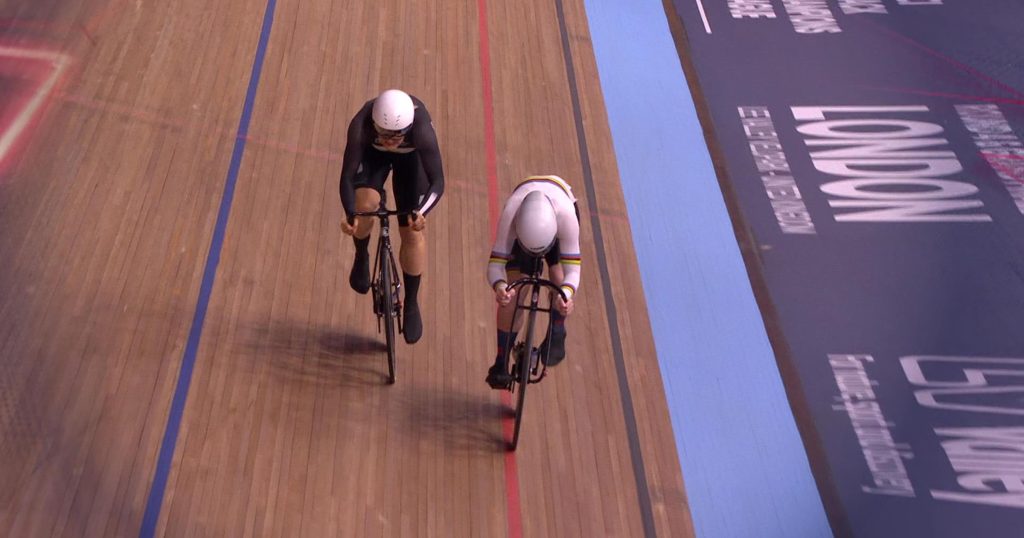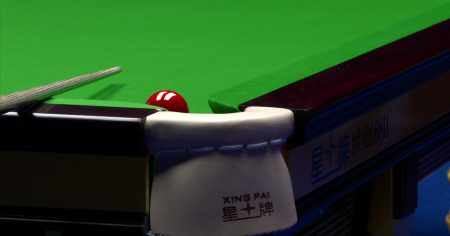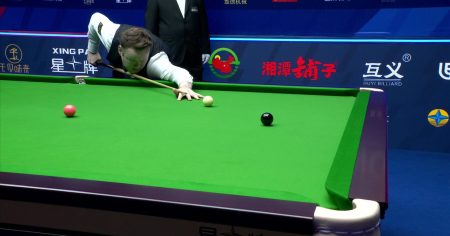The atmosphere inside the Grenchen velodrome crackled with anticipation. The Track Champions League, a high-octane series showcasing the world’s elite track cyclists, was reaching a fever pitch. The women’s sprint competition, a head-to-head battle of speed, strategy, and raw power, was set to be a highlight of the evening. Among the competitors, two names stood out: Emma Finucane of Great Britain, a rising star with a reputation for explosive sprints, and Ellesse Andrews of New Zealand, the reigning Olympic champion, a force to be reckoned with on the track. The stage was set for a thrilling showdown.
The sprint competition, a test of tactical prowess as much as pure speed, began with the qualifying rounds. Riders individually raced against the clock, vying for the fastest times to secure advantageous positions in the subsequent head-to-head heats. Finucane, demonstrating her burgeoning form, posted an impressive time, signaling her intent to challenge for the top spot. Andrews, as expected, also qualified with ease, her experience and pedigree evident in her smooth, powerful riding. The initial rounds served as a prelude to the main event, the knockout stages where the pressure would intensify with each passing round.
As the competition progressed, the tension within the velodrome mounted. The early rounds saw riders jockeying for position, testing their opponents, and conserving energy for the crucial final sprints. Finucane, with a combination of calculated moves and bursts of speed, navigated her way through the heats, demonstrating a maturity beyond her years. Andrews, with her characteristic calm and controlled riding style, also progressed steadily, her Olympic champion status radiating confidence. The two riders, on a collision course for the final, were showcasing the very best of track cycling, a blend of power, precision, and tactical acumen.
The much-anticipated final between Finucane and Andrews was a spectacle of speed and skill. The two riders circled the track in the initial tactical phases, each trying to anticipate the other’s move, searching for the perfect moment to unleash their final sprint. Finucane, displaying remarkable composure, chose her moment perfectly, launching her attack with explosive acceleration. Andrews, caught slightly off guard, responded with a surge of her own, but Finucane’s initial burst proved decisive. She crossed the finish line a fraction of a second ahead, securing a stunning victory against the reigning Olympic champion.
The crowd erupted as Finucane raised her arms in triumph. The victory, a testament to her hard work, dedication, and exceptional talent, marked a significant milestone in her career. Beating an Olympic champion, particularly one as dominant as Andrews, was a statement of intent, a clear signal that Finucane was a force to be reckoned with on the world stage. The win resonated beyond the confines of the Grenchen velodrome, solidifying her position as one of the sport’s most exciting prospects and injecting a fresh wave of excitement into British track cycling. The Track Champions League victory was not just a single race win; it was a symbolic victory, a testament to the potential of a young rider poised to achieve greatness.
The victory for Finucane was more than just a personal triumph; it represented a shift in the dynamics of women’s track sprinting. Andrews, the established champion, had been dethroned, albeit in a single race, by a rising star. This changing of the guard, while not definitive, suggested a new era of competition in the sport. Finucane’s victory inspired a new generation of aspiring cyclists, demonstrating that with dedication and perseverance, even seemingly insurmountable obstacles, like beating an Olympic champion, can be overcome. The race, and its dramatic outcome, underscored the dynamic and ever-evolving nature of elite sport, where new challengers constantly emerge to test the established order. Finucane’s win was a thrilling reminder of the unpredictability and excitement that make sport so compelling.














